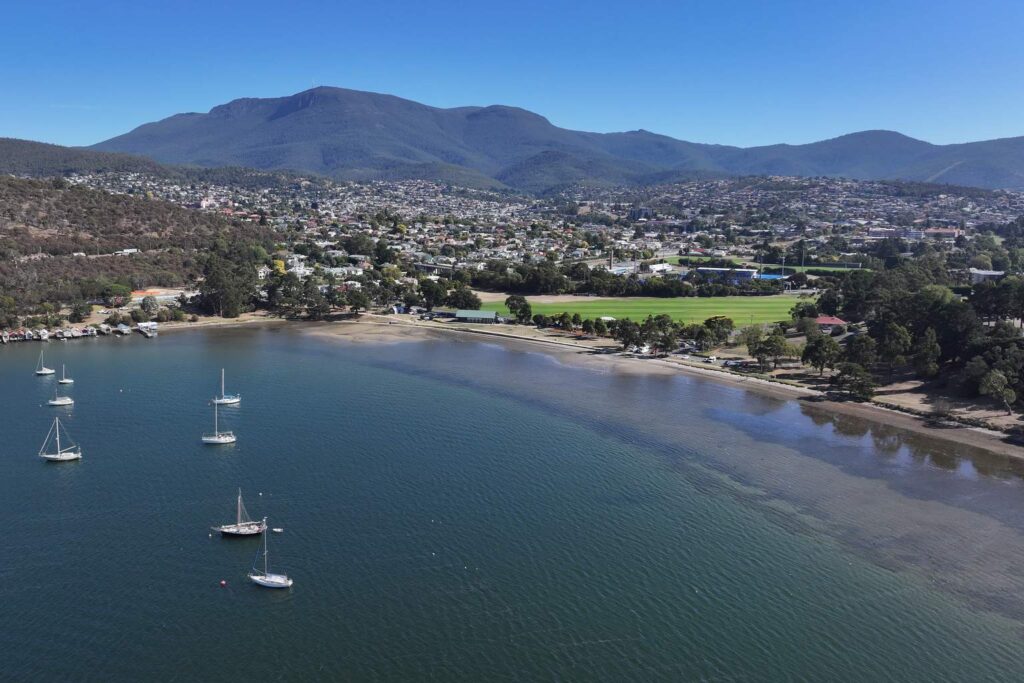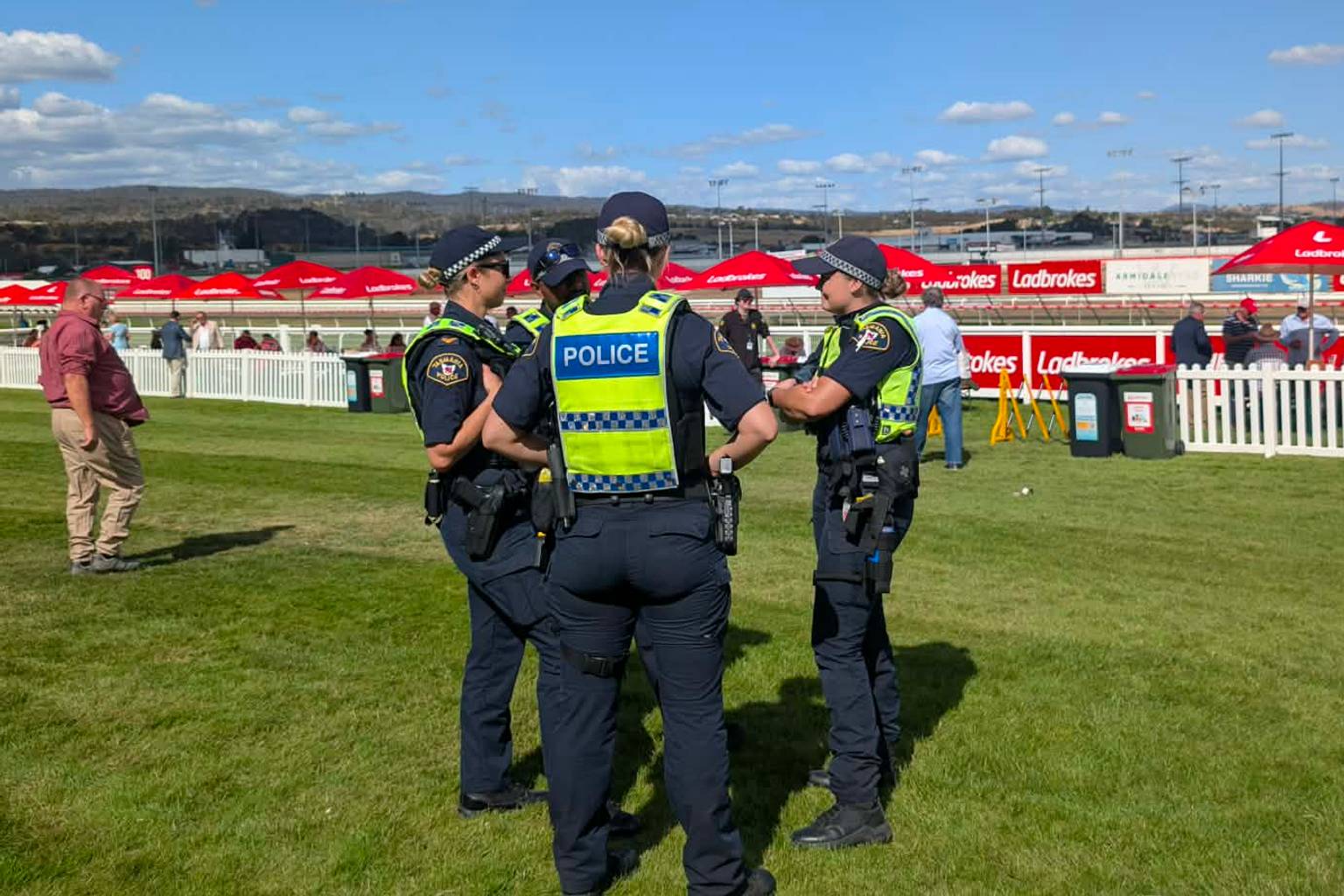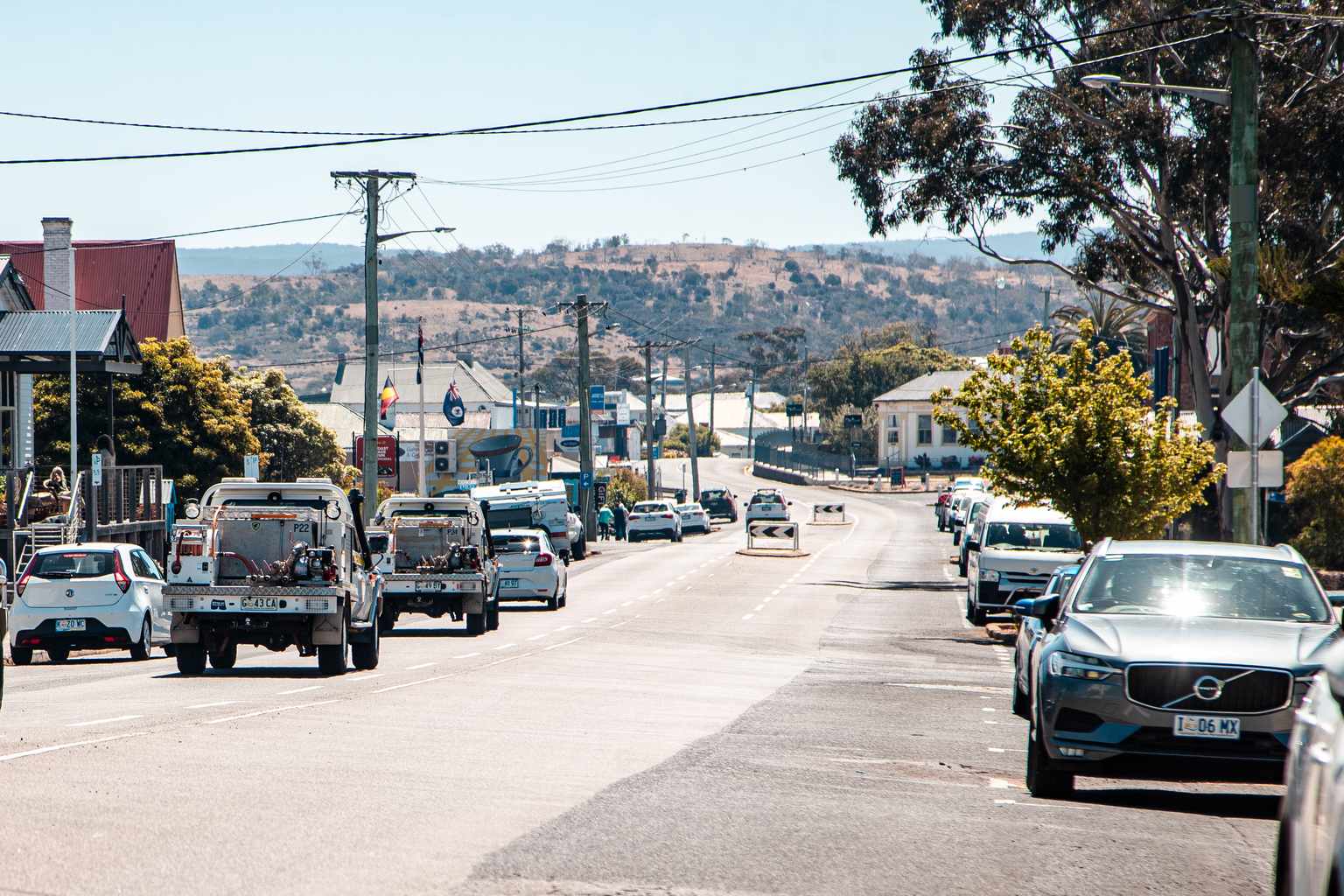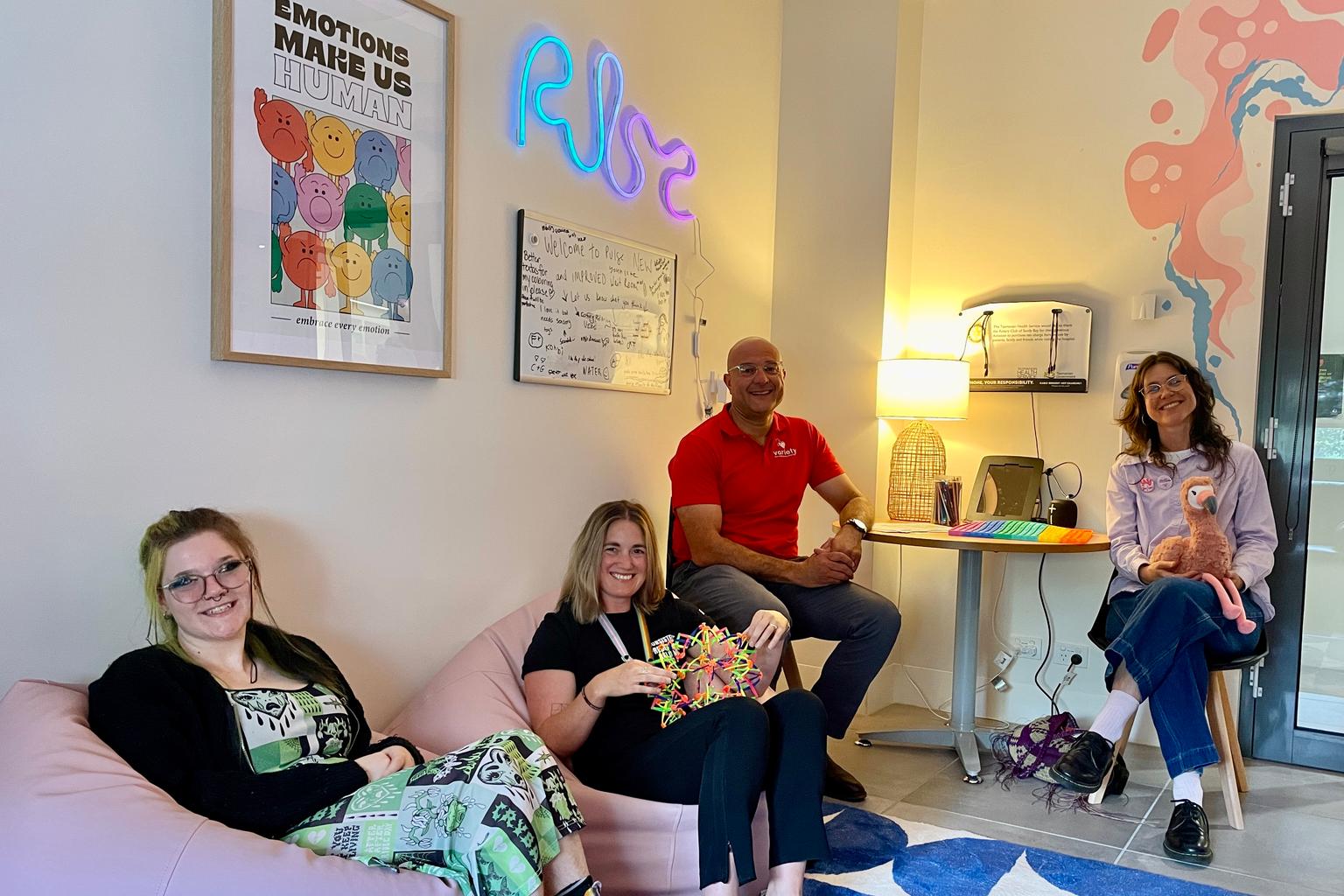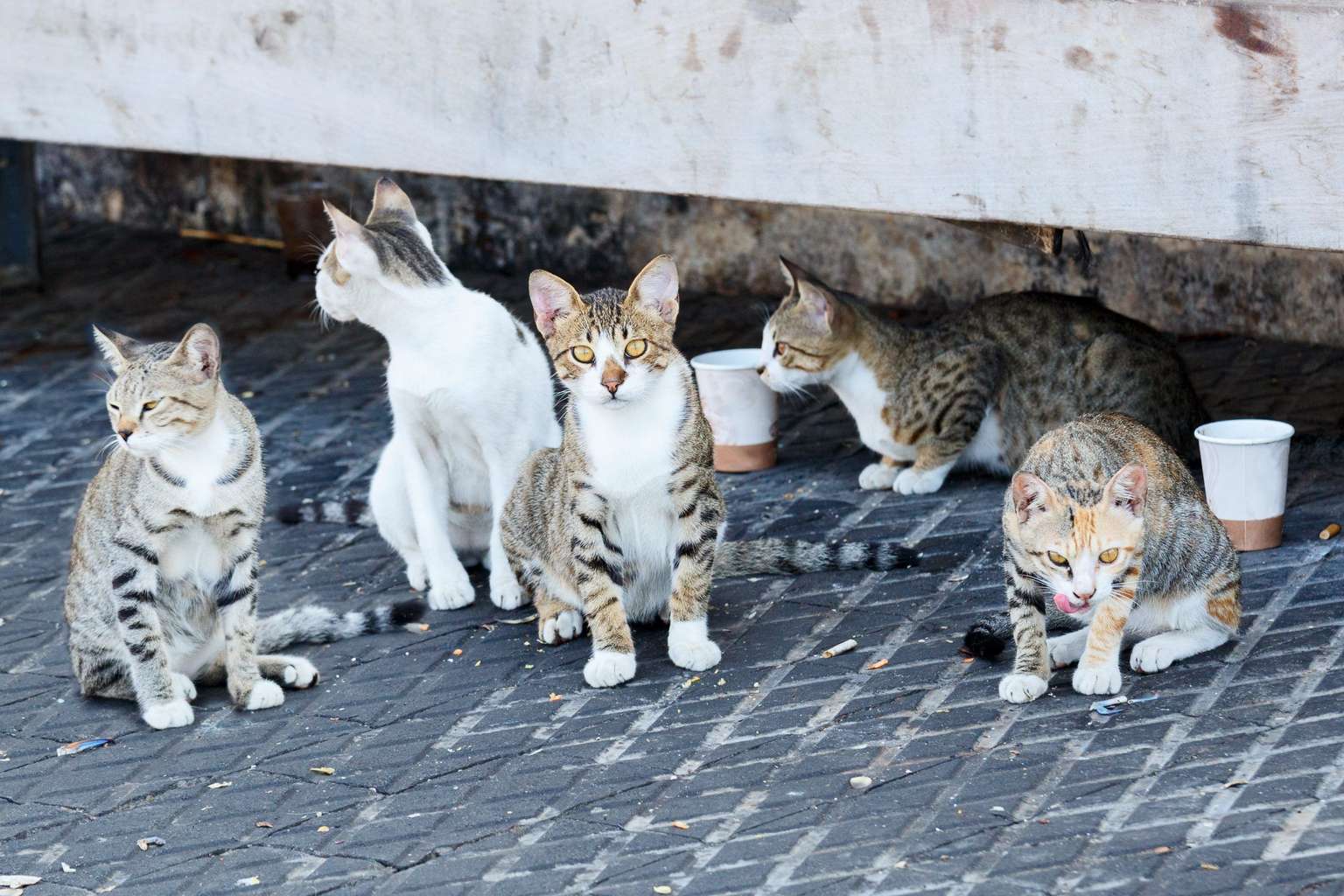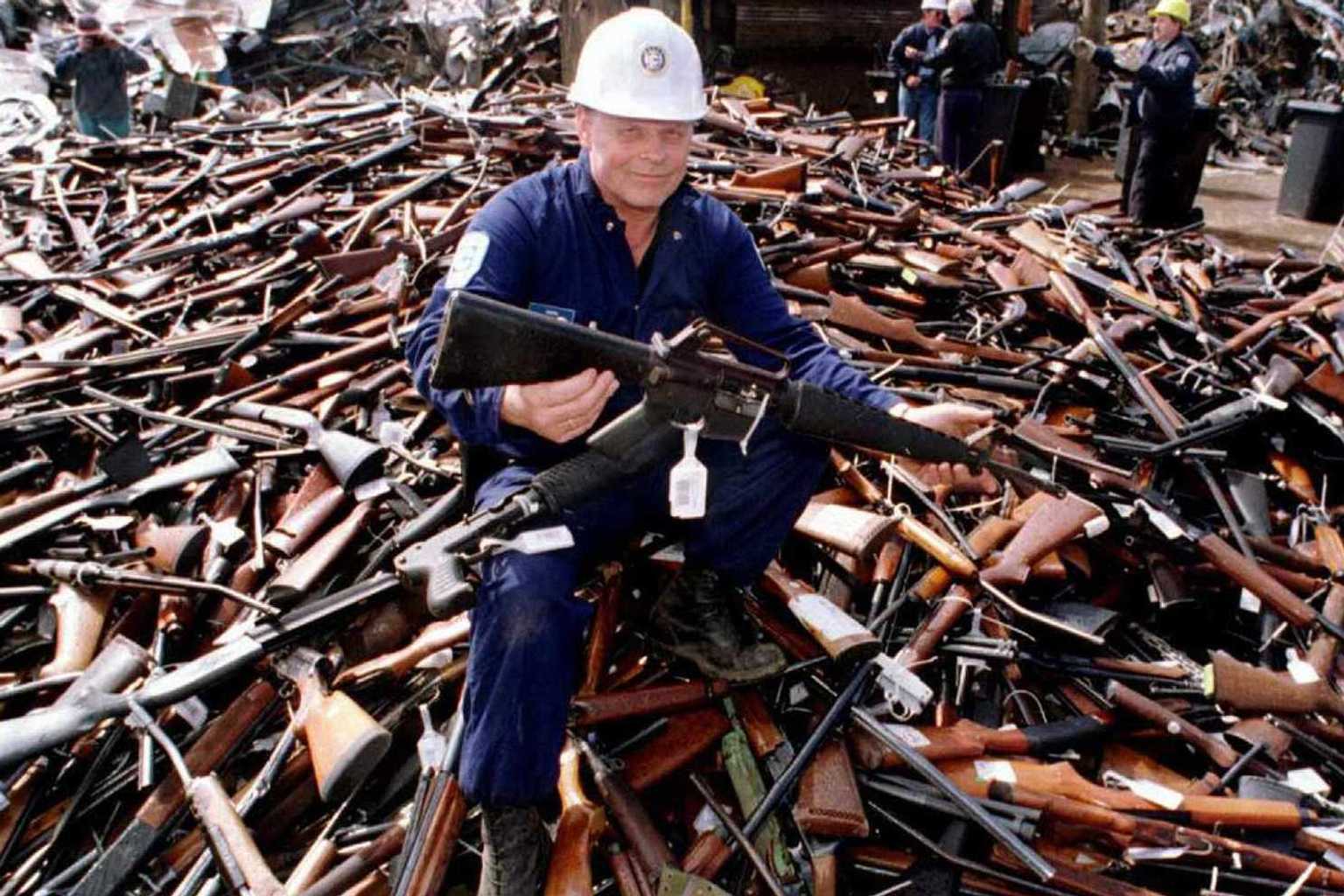Hobart’s Cornelian Bay could soon be a swimming beach once again under a new proposal set to be considered by the city council.
Councillor Ryan Posselt is leading the charge with a motion calling for water quality testing and a report on remediation options for the foreshore.
The bay was once a go-to swimming spot, but industrial activity upstream led to sediment contamination and a drop in water quality through the latter half of the 20th century.
Council permanently banned swimming at the site in 2006 following consistent poor water quality readings.

Monitoring stopped altogether around 2014 due to workplace health and safety concerns, with officers getting stuck in muddy sediment while collecting samples.
Historic council readings show there were “generally quite good water quality” results when testing was done from a boat and the sediment remained undisturbed.

According to Posselt, the contamination stems from two sources: stormwater outflows from nearby streets and sediment contamination.
“There used to be sand at Cornelian Bay, but it was mined in the interwar period. But today, it’s returning,” Posselt said.
The motion, supported by councillor Zelinda Sherlock, calls for council to work with the Derwent Estuary Program to undertake a new water monitoring program and assess remediation options to restore the site to swimming standard.
Posselt highlighted the bay’s recreational history, noting that “many people in their 70s and 80s recall swimming here as a child”.

Council officers have supported the motion, noting that with the current development of a Cornelian Bay Master Plan, it “does make sense” to focus attention on the bay’s water quality.
The push comes amid heightened community awareness around Derwent Estuary water quality following recent contamination events, including Cadbury’s discharge of high-sugar waste in December.
“In the motion, we simply ask council officers to provide a report to tell us how we can achieve these goals,” said Posselt. “Are you ready to jump in? I know I am.”
If approved, the new round of water testing is expected to cost around $564 for lab analysis, with additional costs for expert input.
The motion will be considered at Monday’s council meeting.

